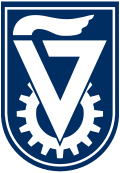Overview
GTEP's stated aim is to bring together Technion's researchers to discover and tap alternative and renewable energy sources, promote more efficient energy use, and reduce the environmental damage caused by the production of fossil fuels. [1]
GTEP is interdisciplinary, with members spanning the range from nano science through to applied engineering. [2]
The stated GTEP mission is: [3]
- To support energy projects with global impact
- To promote multidisciplinary cooperation
- To build on Israel and Technion's existing strengths in energy research and application
- To attract new faculty into energy research
- To attract graduate students
- To strengthen industrial & international cooperation
- To raise awareness in Israel and across the world of energy issues
More than 40 faculty members from nine Technion faculties are involved in GTEP projects.
This page is based on this
Wikipedia article Text is available under the
CC BY-SA 4.0 license; additional terms may apply.
Images, videos and audio are available under their respective licenses.





